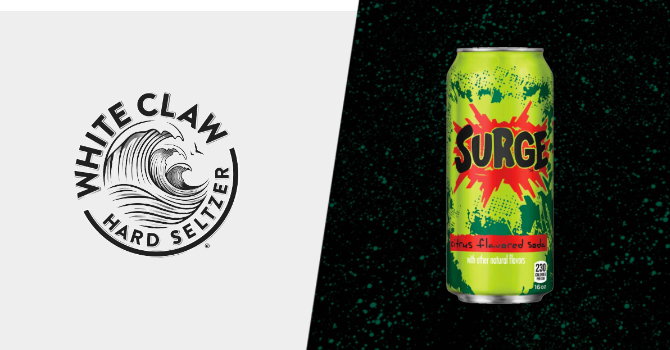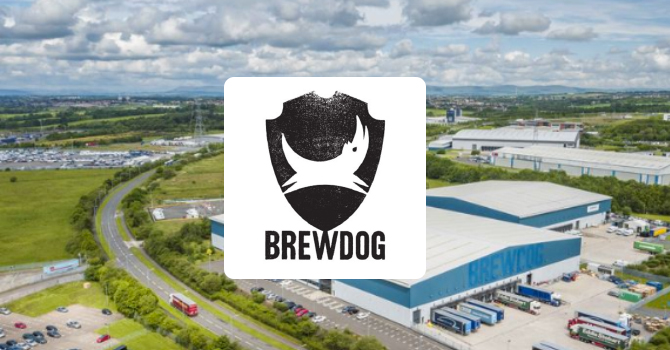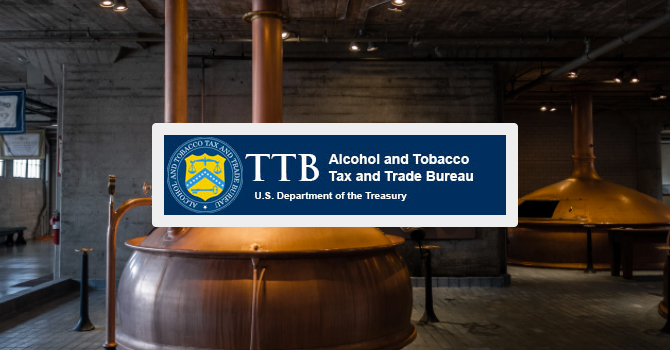
Coca-Cola Files Complaint Against Mark Anthony’s ‘White Claw Hard Seltzer Surge’ Trademark Application
Coca-Cola filed a complaint with the U.S. Patent and Trademark Office last week claiming that Mark Anthony Brand’s application to register “White Claw Hard Seltzer Surge” infringes on its Surge brand of citrus sodas.
Mark Anthony Brands filed an application with the USPTO on May 24 to register the brand name White Claw Hard Seltzer Surge, a product that has not yet been announced.
According to Coca-Cola’s complaint filed November 20, White Claw’s proposed use of the Surge name is similar in “sound, appearance, connotation and commercial impression.”
Surge soda launched in the 1990s as a competitor to Pepsi’s Mountain Dew brand and was discontinued in 2003. Coca-Cola resurrected the brand in 2014 and filed a trademark application for it on December 31, 2013.
White Claw Hard Seltzer’s products are “highly similar and/or closely related to the goods for which opposer’s Surge mark is registered, and may be offered, at least in part, to the same or related classes of purchasers, distributed through the same or related channels of trade, and advertised and promoted through the same or similar media channels,” according to the complaint.
Requests for comment from Mark Anthony Brands were not returned. The company must respond to Coca-Cola’s complaint by December 30. Both companies must have a discovery conference by January 29.

FDA Issues Warnings to 15 Companies for CBD Products, Cannot Declare CBD ‘Generally Regarded as Safe’
The U.S. Food and Drug Administration announced that it cannot yet determine that CBD is safe for consumption and issued warnings to 15 companies for promoting products with it in ways that violate the Food, Drug and Cosmetic Act, according to THCNet.
“As we work quickly to further clarify our regulatory approach for products containing cannabis and cannabis-derived compounds like CBD, we’ll continue to monitor the marketplace and take action as needed against companies that violate the law in ways that raise a variety of public health concerns,” FDA principal deputy commissioner Amy Abernathy said in a press release. “We remain concerned that some people wrongly think that the myriad of CBD products on the market, many of which are illegal, have been evaluated by the FDA and determined to be safe, or that trying CBD ‘can’t hurt.’”
The Food, Drug and Cosmetic Act prohibits companies from adding CBD to food, marketing products for children or infants, and claiming that CBD products can treat diseases, provide any kind of therapeutic relief or serve as a dietary supplement. The FDA issued warnings to 15 companies for violating this law.
The companies are required to respond to the FDA within 15 days.
So far, only one drug with CBD has been approved for use in humans; it treats two forms of pediatric epilepsy, Abernathy noted in the release. In order to declare CBD “generally recognized as safe,” the FDA must conduct more research on the substance’s affect on humans.
“We recognize the significant public interest in CBD and we must work together with stakeholders and industry to fill in the knowledge gaps about the science, safety and quality of many of these products,” Abernathy said.

US Brewery Shipments Declined 4.3% in October
U.S. breweries shipped 13.1 million barrels in October, down 4.3% from the same month last year, according to the Beer Institute (BI), which cited unofficial estimates of domestic tax paid shipments from the Alcohol and Tobacco Tax and Trade Bureau.
Year-to-date, U.S. breweries have shipped nearly 139.7 million barrels of beer, or 2.6 million fewer barrels than this time in 2018.

COOP Ale Works Announces Hard Seltzer Line
Oklahoma City-based COOP Ale Works is the latest craft brewery to announce plans to launch a line of hard seltzers called Will & Wiley — the first among brewers in the Sooner State.
“We’re the same local people that have been brewing COOP beer for more than 10 years and we’re fortunate to have had such broad support,” brand marketing specialist Maggie Sylke said in a press release. “Now, we’re building on that by making a low-calorie hard seltzer that our supporters and community are looking for.”
The first cans of Will & Wiley will roll out to retailers in six states — Oklahoma, Texas, Kansas, Missouri, Nebraska and Arkansas — in March. Flavor offerings include cherry lime, grapefruit, pineapple and mango guava; each flavor will be available on its own in 6-packs and all four will be available in a variety pack. Will & Wiley checks in at 100 calories, two grams of sugar and 5% ABV.
COOP Ale Works will offer Will & Wiley in its taproom prior to launching in package next year, a spokeswoman said.
Following the March launch, COOP will offer a plain version of Will & Wiley that consumers and bartenders can flavor as desired.
“We are creating something that not only tastes delicious and refreshing, but also allows restaurants, bars and customers to get creative,” Sylke said.

BrewDog Sells Distribution Center in Scotland to U.S. Investment Firm
BrewDog has struck a deal with a U.S. investment fund to sell its Hop Hub distribution center near Motherwell, Scotland, according to the Insider.
Commercial real estate firm CBRE Global Investors will lease the 129,000 sq. ft. building back to BrewDog for at least 20 years. Specifics of the sale were not available, but Insider reported that CBRE paid more than £10 million ($12.9 million USD).
BrewDog operates breweries in Ellon, Scotland; Brisbane, Australia; and Columbus, Ohio, as well as dozens of taprooms throughout the United Kingdom and continential Europe. The company also acquired the former Stone Brewing facility in Berlin, Germany, in April.
In the U.S., BrewDog operates taprooms in Columbus and Indianapolis.
CBRE is headquartered in Los Angeles and operates 32 offices worldwide, according to the company’s website.

TTB Accepts Offer in Compromise From Seven Brides Brewing
The Alcohol and Tobacco Tax and Trade Bureau (TTB) has accepted an offer in compromise from now-shuttered Seven Brides Brewing in Silverton, Oregon.
According to the TTB, Seven Brides offered to pay $18,230 of the $132,802.81 it owes in fines for violations that took place from April 2010 to September 2018. Seven Brides has offered to pay $3,630 up front and $1,000 each month for 14 months and the $600 balance in the fifteenth month.
“The proponent listed doubt as to collectibility and provided supporting financial documentation,” the TTB statement read. “The acceptance of the offer-in-compromise, as submitted, is warranted.”
Before closing in October 2018, Seven Brides produced 650 barrels of beer, according to the Brewers Association.
The TTB has accepted 18 compromise offers from wholesalers and producers this year.

Anheuser-Busch InBev Rolls Out New Bud Light Ad
Anheuser-Busch InBev debuted a new holiday-themed Bud Light commercial as the holiday season is about to kick into gear.
In the latest ad, the Dilly Dilly campaign’s king receives Bud Light cans and bottles from subjects in the name of “Crispmas,” “a holiday invented to celebrate the crisp taste of Bud Light,” according to the kingdom’s wizard.
